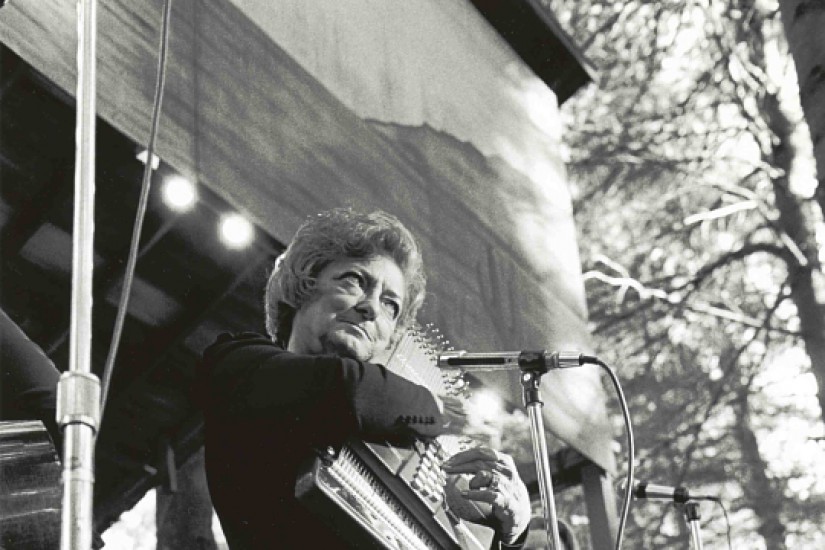Drawing from Appalachian and southern white and Black working people's musical traditions — folk, blues and gospel — the Carters forged their sound amidst massive changes in the South: The railroad companies laid hundreds of miles of tracks, industry expanded and new technologies altered life. In popular American culture, many perceived Appalachia as an isolated place, trapped in amber. Yet Maybelle, Sara and A.P. were among a generation of young Appalachians who defied easy categorization. They had strong ties to the communities of their parents and grandparents, where they scratched out a living on small farms. At the same time, they chased opportunities in the industrializing South. Their music could never be a distilled version of an imagined pre-industrial past. Rather, it relied on and reflected the migration of people, ideas and technology.
The 1920s saw the beginnings of the greatest spatial reorganization in U.S. history, peaking in the 1940s, and made up of Black and white southerners, many from Appalachia. They moved around the nation in search of work — to cities like Baltimore, Detroit and Cleveland, or into the mill towns, lumber and coal camps throughout the South. The Carter Family provided an apt soundtrack: old songs recreated in the modernizing South, and aired on the radios that were becoming a prized possession for many American working families. We can hear the stories of migration, and the forlorn longing for home, in many of the Carter songs. In "The Mountains of Tennessee," Maybelle plucks out a melody before the three harmonize "Take me back, take me back to my old mountain home / Take me back where my heart longs to be."
Racial segregation was also hardening in these years. Country music would not exist without white and Black musicians sharing songs and style, yet the recording industry of the early twentieth century segregated music by race, selling "hillbilly music" to white audiences and "race music" (blues and gospel) to Black audiences. The Carter Family came to represent hillbilly music, yoked to a white image of Appalachia. The great irony is that the Carter Family relied upon the creative collaboration of Lesley Riddle, an African American musician who lived in nearby Kingsport. Riddle accompanied A.P. on numerous trips to collect songs in Appalachian communities. A.P. wrote down the lyrics while Riddle memorized the tune. Riddle then taught the songs to Sara and Maybelle, who credits Riddle with influencing her style of guitar picking. Although Riddle profoundly influenced the sound of country music, it would be well into the 1960s before he garnered recognition for his contributions.
The success of the Carter Family band also hinged on women's labor.
